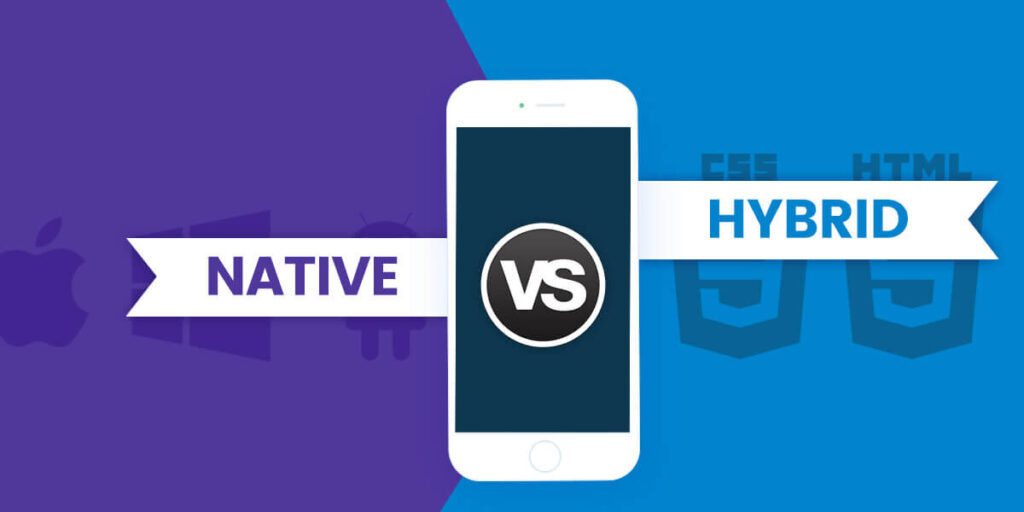
Hybrid Vs. React Native- Which One Suitable For Fintech App?
The financial sector has been transformed by FinTech apps. This blog is for you if you want to develop your fintech app but can’t decide which app development method to use.
Fintech apps are keeping people from having to deal with a lot of problems that make life hard. They make day-to-day exchanges simple, secure, and fast. The question then becomes what makes these apps easy to use. They are, of course, fantastic apps because of the frameworks and programming languages.
The subject of “React Native vs. Hybrid: Which platform for developing fintech apps is better?” And which is suitable for startups because it offers the highest quality at a low development cost.
Hybrid apps, according to numerous expert developers, are quicker to develop and less expensive. Besides, characterizing the upsides and downsides of the various structures before working with one is hard. The measurements show that by 2026, purchasers will download 143 billion versatile applications from the Google play store and 38 billion downloads from the Apple application store.
- The most effective UI/UX features are found in the most successful fintech apps, which are developed using a variety of criteria.
- The best security services are provided by strong security, which safeguards data.
- Performs best and is easiest to use.
When developing a fintech app, you should take these things into account. How about we start the blog with native applications?
Defining Native Apps
Simply put, native applications are made specifically for a particular platform. A mature ecosystem is used to develop a native app. The app will only run on the specific operating system if native languages are used.
In addition, Java is utilized for local Android applications, and for iOS applications Quick or Objective-C dialects are utilized. Native apps are preferred by many developers due to their superior performance. We can say that each framework has advantages and disadvantages, but developing a fintech app is difficult. React Native is the best choice for improving the performance of fintech apps. This is very important for banking app testing companies to know.
When Select React Native?
React Native is used by numerous well-known companies, like Airbnb, Walmart, and Instagram, for innovative apps. Here are a few justifications for selecting React Native while creating finance applications.
- When you’re prepared to deploy your solutions slowly.
- There are no financial concerns;
- You are ready for a double team, double expense, and double time.
You may select React Native for financial app development if the answers to all the aforementioned questions are yes and you are capable of managing all the aforementioned factors. Alternatively, you can use hybrid when developing apps.
Additionally, if you use React Native for the creation of your financial app, your app will be faster and more secure than other applications while still being user-friendly.
The greatest framework for creating banking apps is React Native, which is why we suggest it.
Defining Hybrid
Solutions for both native and web apps are provided by hybrid apps. Hybrid applications permit designers to utilize a solitary code base that can work across different stages. You can undoubtedly make a fintech application for new businesses by picking a hybrid platform.
In addition, developing hybrid apps is simpler and less expensive than developing native apps. The code can be encrypted and used again. Its presentation and UX are like local applications. Among the hybrid app development frameworks are Apache Cordova, Ionic, and Visual Studio.
Why choose hybrid?
Hybrid apps are great for new businesses because they can be developed quickly and cheaply. On the off chance that you are wanting to send off MVP with a restricted spending plan and with tight cutoff times half breeds are ideal.
In addition, hybrid apps are cost-effective, simple, and develop faster than native apps. React Native should be considered for fintech app development if high functionality and performance are required by the user experience.
Mixture applications are less secure which makes them not great for Fintech and banking arrangements. As fintech applications required solid security for clients. Here are a few Instruments for hybrid application improvement:
- Visual Basic
- The Ionic Platform
- Apache Cordova.
What to Select Between Hybrid and React Native While Creating A fintech App?
Due to its revolutionary approach to mobile app development, we recommend React Native for fintech app development. The most crucial factor in an app’s success is React Native, which will assist in the development of a highly adaptable application.
The fintech region is adaptable and serious. We can claim that React Native has revolutionized mobile app development. The bank app testing companies prefer to use react native.
For cross-platform development, the majority of financial institutions have chosen the React Native framework. Although it will take some time, the cost of development will vary from app to app. The hybrid app is cheaper than React Native, aims to serve both types of users, and has many drawbacks. If you’ve decided to develop fintech apps quickly using React Native.

Aimee Garcia is a senior editor at ReadDive. She has 5+ years of experience in Digital Marketing. She has worked with different IT companies.
